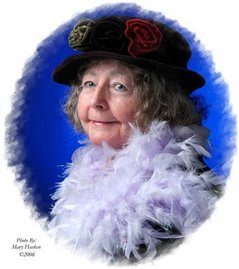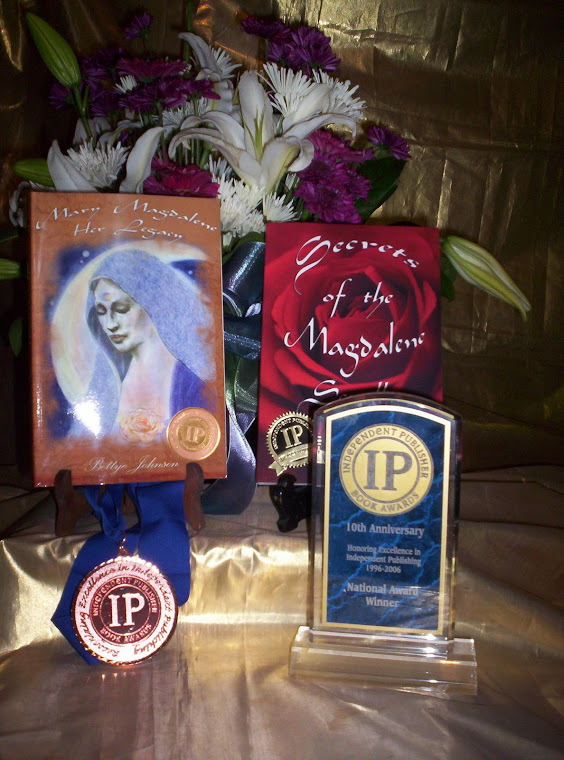HOW TO SURVIVE TOUGH TIMES
During these tough economic times, natural disasters, wars, famine and plagues, we women can meet the challenges. We have been doing this for centuries. It is in our genes to rise to the occasion. How do we survive? Make a plan and follow through.
1. Mental stability.
2. Emotional stability
3. Prepare
4: Suggestions
1. Mental Stability: First of all, do not panic or fall into fear. Fear attracts what one does not want. There is an old biblical verse that says, The thing I feared the most came upon me. Mentally step back and access the possibilities that are open. Make a list of what you want. Read aloud each item on your list three times a day or more. Visualize yourself receiving and experiencing what you want.
2. Emotional Stability: Stop feeling like you are a victim. The most difficult thing to do is to take responsibility for our actions, our thoughts and our words. The frequencies of our thoughts and words go out and attract to us our experiences. The best advice comes from this quote:
Watch your thoughts, for they become words. Choose your words, for they become actions. Understand your actions, for they become habits. Study your habits, for they become your character. Develop your character, for it becomes your destiny. ~ Tryon Edwards
3. Prepare: Do you have extra food in your pantry? Can you survive for a month? Do you have extra water? What would happen if due to natural disasters that the trucks bringing in food to the grocery stores could not get through? What is there is no available water? Do you have a good first aid kit? Do you have adequate warm clothes if the weather is cold and there is no heat in your home? Search Internet for items needed.
4. Suggestions: Do not use plastics. Plastics are made from oil derivatives and can be harmful and weaken the immune system. This is why bottled water in plastic is not good. Look for glass. If you live in cities, fluoride has been scientifically proven that it is harmful and can weaken the immune system. Find a source of good, clean water. Saving wine bottles and glass pop bottles is great. You can sterilize them by pouring scalding water inside them and then pour it out. Or, you can leave it in and once cooled, cork it with new corks.
I have also cleaned these bottles and store sugar in some and salt in others. I always use new corks. I use quart size glass canning jars with clean lids to store flour and rice. We can each become innovative.
Stop looking at television and read a good book. A recent article indicates that many people are beginning to read more books instead of going to movies and dining out.
Even if you live in a city, you can have a garden. Many people grow vegetables in containers. If you live in the suburbs, you can make your yard a garden. There are many avenues open to anyone who have the inclination to research and take action.
Do not take the vaccines. Have a healthy mind and emotional body and you won't need a vaccine. Many of them weaken the immune system instead of protecting them. Read up on this by going on-line and researching this.
We are creative beings and we have the ingenuity to create methods and means for taking care of ourselves and our families. It does mean that we have to sacrifice our anger, our resentment, our jealousy, our victimization and a host of other beliefs and emotions to become strong.
To the Future!
Saturday, January 30, 2010
Friday, January 29, 2010
Celebrating 100 Years of Women's Right to Vote in Washington State

HONORING WOMEN WHO HAVE MADE A DIFFERENCE.
If I had my druthers, I would be most happy to say that all women in the United States had the right to vote for 100 years. On Monday, February 1, the women of Washington State will be celebrating their 100 years of the right to vote. The move for equal voting laws began in 1854 when a member of the Washington Territorial Legislature introduced an amendment for this and it failed to pass by one vote even though another bill passed in the same year, which gave all male white citizens above the age of 21 the right to vote. Even though this was voted down, it rallied the women and they filled the large cities and the small towns. They were angry and argued that the U.S. Constitution's 14th Amendment used the word 'citizen' meaning 'all persons born or naturalized in the United States did not mean only white males over 21 years of age.
When the Territorial Legislature passed the law giving the right to vote to 'all white citizens above the age of 21" some of the suffragists tested their voting rights based on the U.S. 14th Amendment in 1869 at White River. Their votes were rejected although fifteen women in Thurston County successfully voted in 1870.
The women of Washington State began organizing parties, marches, and demonstrations. Actually Washington was a territory because it was not admitted into the Union until November 11, 1889. One forceful woman was Emma Smith DeVoe who after moving to Tacoma organized speeches, rallies and demonstration forcing the issues into the open. In 1883, both houses of the legislature signed into law a bill giving women voting rights and the governor signed it. However, in 1887 the Washington Territorial Supreme Count revoked suffrage because of a suit brought by a gambler who had been indicted by a grand jury that included women. This did not stop the women.
In February 1910, the legislators allowed a vote to amend the State Constitution giving women the right to vote. It passed and the suffragists had distributed one million pieces of literature. Washington State joined the states Wyoming, Utah, Idaho and Colorado who had already enacted the women's right to vote. The right to vote did not become nationwide until the 21st Amendment initiated by suffragist Alice Paul was ratified by the necessary number of states.
Even though women have the right to vote today, there are still many hurdles to overcome and one is the Equal Rights Amendment, which needs only three more states to ratify it. This amendment gives all women equal rights. It is pitiful that women have to gain equality law by law and also an amendment. When is this going to stop? If it is to be, it is up to each woman individually to bombard their national representatives to garner the votes from the states who have not ratified the E.R.A.
Frances Perkins
One notable woman who is rarely recognized or honored for her achievements is Frances Perkins. Some will say Frances who? Frances was born in 1880 in Boston. She attended college in New York State and developed a passion to help the underprivileged. In 1911 she was working for the Factory Investigation Commission in New York City when the Shirtwaist Factory Fire occurred. From her biography by Naomi Pasachoff, the writer tells of Perkins being horrified that 146 immigrant women had jumped to their deaths. Perkins lobbied until she had a law passed in the city for all buildings to have fire escapes.
Perkins became active in politics and what I have gleaned from her biography is that she was persistent without seemingly being abrasive in her approaches. As she worked her way up the political ladder, she always made friends with the wife of the politicians. She worked for Franklin Delano Roosevelt and became a friend of his wife Eleanor. This seems to be a trait Perkins had or a ploy to become friends with the wives and then there would be no jealousy of her while working with their husbands - smart woman. With the election of F.D.R. as President, Perkins became his Secretary of Labor and the first woman cabinet member. She was also at that time as the first selected cabinet member to be in line for the presidency if he should pass.
As the Secretary of Labor from 1933-1945, Perkins initiated and with F.D.R. backing her, the Social Security Act, Civilian Conservation Corps, Unemployment Insurance, Public Works Agency and its successor the Federal Works Agency and the Fair Standards Act. Therefore, I salute Frances Perkins for love and caring for the poor and wanting to make life better for them.
Her biography is The Woman Behind the New Deal: Frances Perkins by Naomi Pasachoff.
Subscribe to:
Comments (Atom)








